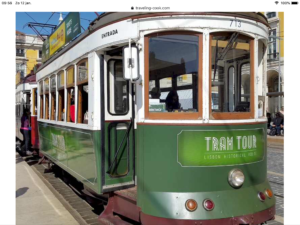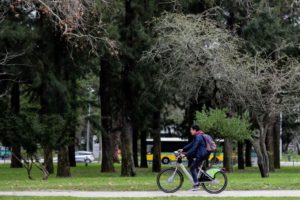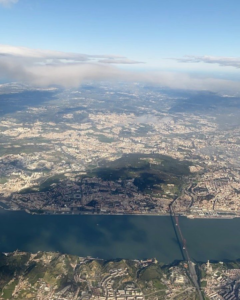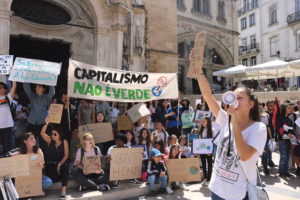Since March 2015, Jews living abroad have the right to obtain the Portuguese nationality if they can prove to be descendants from the Sephardic Jews – Marranos – who were persecuted and banned from Portugal more than 500 years ago. At that time an estimated 200.000 were imposed to escape the Iberian peninsula and fled to the Ottoman Empire – present-day Turkey – North Africa and a smaller number to France, England and the Netherlands.
 In the last four years over 37.000 Jews have applied for a passport. Around 20% succeeded in getting one, allowing them to travel visa-free in the EU. The requests mainly came from Israel and Turkey, but also from Brazil, Argentina, the US and more recently the UK due to Brexit.
In the last four years over 37.000 Jews have applied for a passport. Around 20% succeeded in getting one, allowing them to travel visa-free in the EU. The requests mainly came from Israel and Turkey, but also from Brazil, Argentina, the US and more recently the UK due to Brexit.
The overwhelming majority of applicants from Israel are between 20 and 45 years old. ‘Many ask for it in view of their children – so that these can study in Europe – others for emotional reasons as if looking for a certain justice to be done’, declares Ruth Calvão, president of the Jewish Study Centre.
‘In the case of Turkey, the country’s political instability is important. People there no longer feel safe as Jews. If there is an opportunity to obtain a European passport, they go for it.’
 Descendants to Muslims expelled from Portugal in 1496 now also want to be included in the amnesty, that has seen thousands of Sephardic Jews from all over the world reclaim their Portuguese nationality.
Descendants to Muslims expelled from Portugal in 1496 now also want to be included in the amnesty, that has seen thousands of Sephardic Jews from all over the world reclaim their Portuguese nationality.
‘If there is a community of Muslims who have documents that prove they descend from Portuguese expelled, they should have the same right’, says David Munir, leader of the Lisbon mosque. ‘Indeed, it’s a question of equity and justice’, declares historian Filomena Barros from the Évora University in the newspaper Expresso.
 Many of the expelled Jews have maintained the Portuguese language (or Ladino, a merger of Castilian and Portuguese), the religious and food rites of Jewish worship in Portugal and preserved family surnames, records, objects kept for generations and documents proving their Portuguese origin.
Many of the expelled Jews have maintained the Portuguese language (or Ladino, a merger of Castilian and Portuguese), the religious and food rites of Jewish worship in Portugal and preserved family surnames, records, objects kept for generations and documents proving their Portuguese origin.
Muslims haven’t. They have instead been assimilated into North African populations at which it is difficult to prove whose family came from Portugal and whose not.
Aproveite a semana Enjoy the week (pic Público)

 Lisbon is Europe’s Green Capital 2020. A recognition of the work the city has been done over the past years towards a greener and more people-friendly city (
Lisbon is Europe’s Green Capital 2020. A recognition of the work the city has been done over the past years towards a greener and more people-friendly city ( Extension of
Extension of  To date, the capital has around 800.000 trees. Lisbon’s biggest – 10 km² sized – Monsanto park, not only generates much-desired shadow but captures CO2 as well. One of the first initiatives of the City Council in January has been the planting of
To date, the capital has around 800.000 trees. Lisbon’s biggest – 10 km² sized – Monsanto park, not only generates much-desired shadow but captures CO2 as well. One of the first initiatives of the City Council in January has been the planting of  Although the sale of electric cars doubled in 2019, compared to the previous year, there are only 1000 public
Although the sale of electric cars doubled in 2019, compared to the previous year, there are only 1000 public  It is difficult to understand why the city is mobilized to be the Green Capital 2020 when major political decisions point into the
It is difficult to understand why the city is mobilized to be the Green Capital 2020 when major political decisions point into the